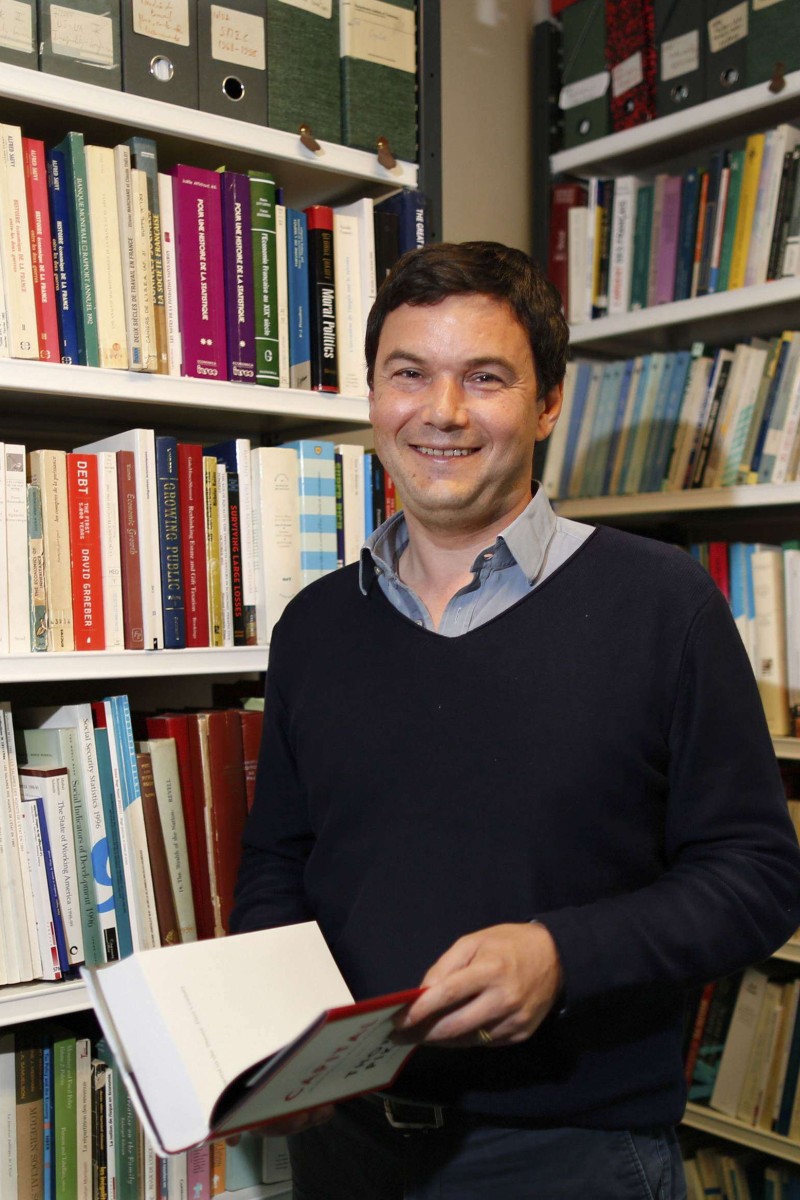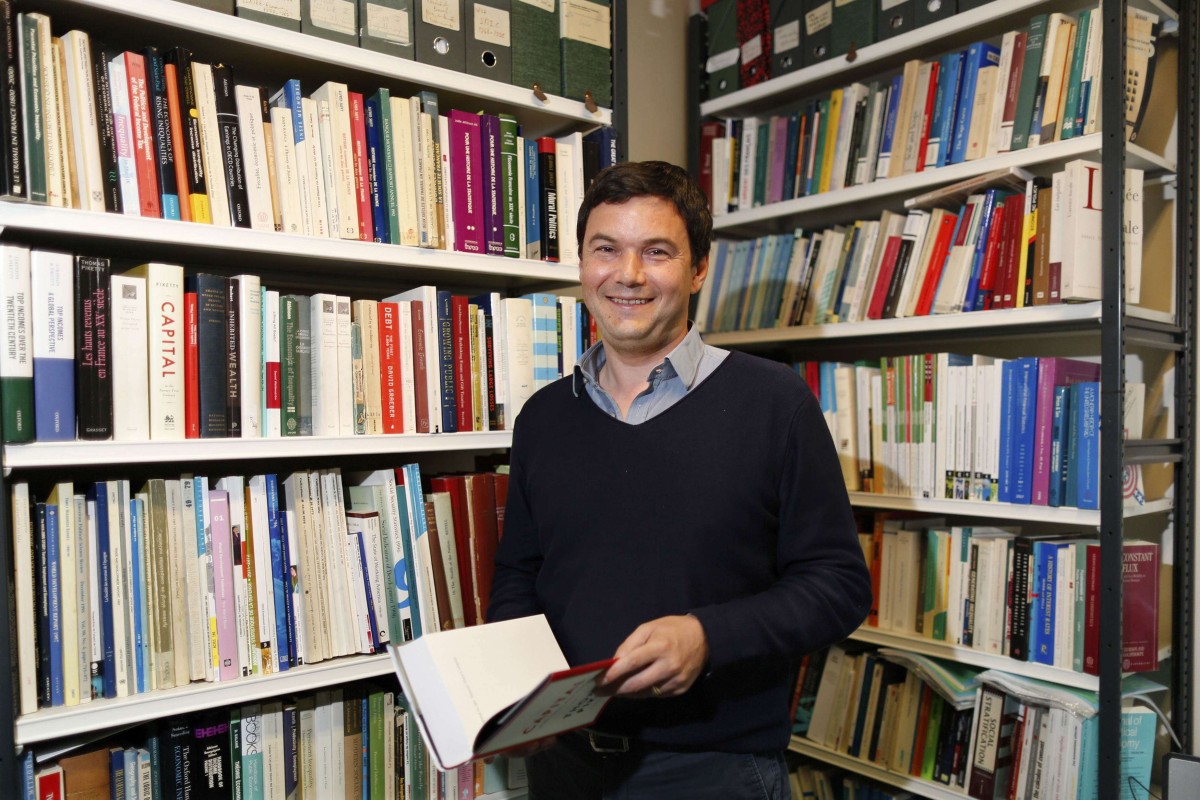
Top 10 VIPs: Thomas Piketty, the young French economist who is set to change the world
His book, Capital in the Twenty-First Century, was a global best-seller and made people stop and think about economic equality
 French economist and academic Thomas Piketty's book "Capital in the Twenty-First Century" has somehow become a bestseller.
French economist and academic Thomas Piketty's book "Capital in the Twenty-First Century" has somehow become a bestseller.Thomas Piketty is very much a VIP of NOW. He looks at our world, and searches for ways of making it a fairer, better and more efficient place by reorganising wealth. Wealth is there. It just needs to be sorted out. Money and trade are what make our world go right and what make it go wrong, and Piketty believes we are currently getting the combination of these two essentials wrong.
Piketty is not just a theorist. He offers a solution to the world’s economic problems. He believes that we must iron out economic equality and one way of doing it is through a progressive global tax on wealth. Inequality of wealth is not an accident, but a built-in feature of capitalism. The only way that the world can really prosper is if capitalism is reformed. And the best way of achieving that is if governments come together to work out a global tax on wealth and ensure its implementation along with education and explanation.
Capital in the Twenty-First Century
Economics, the way in which world trade, industry, or money is organised and studied, is hardly the most riveting of subjects, and Economists are not known as the most fascinating of people. So in 2103, when Piketty’s book, Capital in the Twenty-First Century hit best-seller lists all over the world, people began to wonder what Thomas Piketty had to say.
How did a potentially boring book on economics became a best-seller? This wasn’t The Hunger Games or Harry Potter. How come a young writer could interest thousands of readers on such a dull subject? What was special about him and what he had to say?
Early life and career
Thomas Piketty was born in Clichy, a suburb of Paris on May 7, 1971. His parents were politically active and Thomas was brought up in a family that leaned towards the left of the political spectrum. He was a gifted student at secondary school and at the age of 18 he went to university to study maths and economics.
At 22, he was awarded a PhD for a thesis on wealth distribution which also won the French Economics Association’s award for the best thesis of the year. Piketty had laid down the basis for his life’s work with his outstanding economic theory.
From 1993 to 95, Piketty taught as an assistant professor of Economics at the Massachusetts Institute of Technology. Returning to France, he became a professor at the prestigious School for Advanced Studies in the Social Science in Paris and in 2002, won the prize for the best young economist in France.
Thomas Piketty’s rise to fame continued, and in 2006 he became head of the Paris School of Economics, but left after a few months to work as chief economics adviser to the Socialist Party in France.
For the next decade, awards and recognition continued to fall into Piketty’s lap as he published papers and wrote his widely-read column on economics in the French newspaper Libération. But in 2015, he made the surprise move of crossing the English Channel for a top job on the British Labour Party’s Economic Advisory Committee.
He saw this as an opportunity to help build a new and forward-thinking economic policy that would shake up where wealth could have the most positive and lasting effect not only in the UK but across Europe. This is still a work in progress.
Claim to fame
In spring 2014, a bizarre publishing phenomenon caught the book world by surprise. A young, little-known French economist called Thomas Piketty wrote a 700 page book about economic inequality, and it became an international best-seller.
In Capital in the Twenty-First Century Piketty points out (and gives reams of data and examples) that invested capital grows faster than income, and if you rely on income alone you will never catch up with people who are already rich.
Piketty’s ideas were controversial and fired off global debate at all levels. Had a young French economist with very little experience behind him found answers that the world’s politicians and money-men has been searching for for centuries?
Piketty says ...
“The main force pushing towards reduction in inequality has always been the diffusion of knowledge and the diffusion of education”
“Capitalism and market forces are very powerful in producing wealth and innovation. But we need to make sure that these forces act in the common interest”
“I believe in the power of ideas, I beleive in the power of books, but you have to give them time”
“My premise is not to tax to destroy the wealth of the wealthy; it’s to increase the wealth of the bottom and the middle class”
“I think inequality is fine, as long as it is in the common interest. The problem is when it gets so extreme, when it becomes excessive”
What did people say?
“Piketty’s book is being acclaimed as the most important work of political economy to be published in decades.”
Nick Pearce, New Statesman
“If you haven’t heard of Thomas Piketty, the chances are you will before long. A French economist turning in a book of 640 closely-argued pages might not sound like author of the month, but Capital in the Twenty-First Century is one of those works that catches a moment.”
Ian Bell, Glasgow Herald
“The Frenchman’s new book is already causing a stir. Some reviewers have called it the economic book of the year, others of the decade. Piketty’s ground-breaking work on the historical evolution of income distribution is impressive.”
Paul Sweeney, Irish Times
“French economist Thomas Piketty has written an extraordinarily important book. Open-minded readers will surely find themselves unable to ignore the evidence and arguments he has brought to bear.”
Martin Wolf, Financial Times
Footnote: And his name is pronounced like this: Tome-ah Peek-a-tea. Now you know!